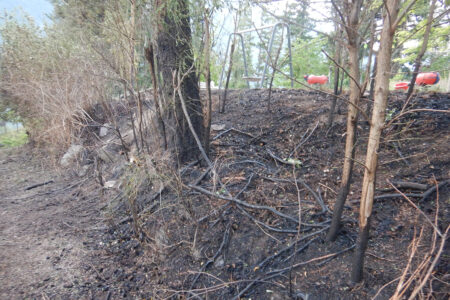Two harm reduction programs not effectively implemented, audits find
B.C.’s auditor general has found that two provincial harm reduction programs that work to reduce toxic drug-related deaths and injuries weren’t effectively implemented by the Ministry of Mental Health and Addictions, and the Ministry of Health.
The two ministries lead B.C.’s response to the toxic drug emergency, focusing on prevention, harm reduction, treatment and recovery.
The report contains two independent audits of provincial harm reduction services. The first audit examined the implementation of overdose prevention and supervised consumption services, and the second looked at how the initial phase of the prescribed safer supply program was set up and monitored.
The audits also reviewed whether the ministries included the perspectives of health authorities, Indigenous Peoples, and people with lived or living experience with substance use.
“Many thousands of people in B.C. are grieving the losses of family and friends from the toxic drug supply,” Auditor General Michael Pickup said. “The crisis is also an immense challenge for those working to provide care and support for people who use substances. My team and I have a deep sense of empathy for everyone who has been touched by this continuing tragedy.”
Overdose prevention and supervised consumption services
The audit found the ministries monitored operational performance of overdose prevention and supervised consumption services, reported publicly on the implementation and adjusted funding as needed.
However, the audit found that:
- the ministries had not adequately responded to implementation barriers, such as municipal resistance, site selection and challenges related to the hiring and retention of staff
- there were no minimal service standards to support consistency in the quality, access and availability of services
- provincial guidance did not always reflect consultations with Indigenous people and people with lived and living experience
- a new program evaluation was needed, given the evolving nature of the health emergency
“These deficiencies have impacts on the people who need these services, their families and the health-care system. Overdose prevention and supervised consumption services are critical to saving lives and connecting people to the supports they need,” Pickup said.
The audit’s five recommendations are aimed at improving service quality, accessibility, availability and cultural safety for overdose prevention and supervised consumption services across the province.
Prescribed safer supply
The audit found ministries developed a data collection framework, monitored and adjusted funding, and initiated an evaluation of the program. However, they didn’t effectively monitor the initial provincewide implementation of prescribed safer supply because:
- the ministries’ strategies didn’t adequately address key implementation barriers, such as the lack of prescribers and the limited types of available drugs
- better collaboration is needed between the ministries and health authorities, health sector partners, Indigenous Peoples, and people with lived and living experience
- public reporting was lacking
“This is a novel program that required transparency with key partners to build trust,” Pickup said. “We found that the ministries’ approach to collaboration with health-sector partners and public reporting was insufficient.”
The prescribed safer supply audit has two recommendations for addressing barriers and improving public reporting.
The ministries have accepted all seven recommendations from the two audits.
Related links:
- Audit report: B.C.’s Toxic Drug Crisis: Implementation of Harm Reduction Programs:
- Audit at a glance






















